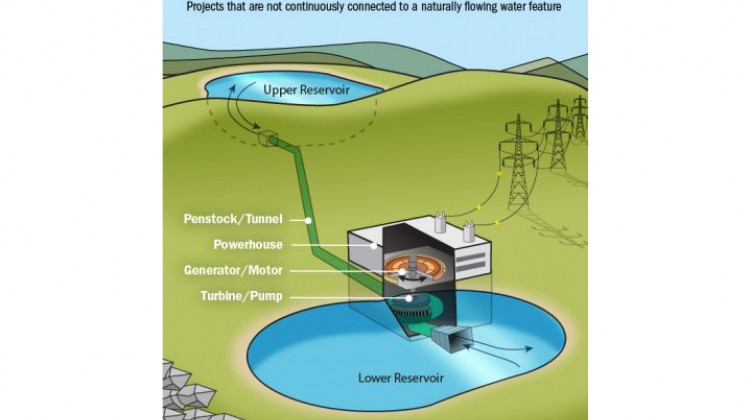
A model shows how pumped storage hydropower works using hills and valleys.
(U.S. Department of Energy)Senate Bill 147 would add underground pumped storage hydropower to Indiana’s list of clean energy resources. It passed the state House on Monday.
The technology generates energy by passing water through a turbine as it moves from a higher reservoir to a lower one. It accounts for most utility-scale energy storage in the U.S., but hasn’t been used much in Indiana — which has fewer of the hills and valleys needed to create the two reservoirs.
READ MORE: Bill aims to encourage energy storage technology at old mines, quarries
Join the conversation and sign up for the Indiana Two-Way. Text "Indiana" to 73224. Your comments and questions in response to our weekly text help us find the answers you need on statewide issues. Trying to follow along with our coverage of the legislative session? We've compiled all the stories our reporters have published by bill number and topic here.
But supporters of the bill say abandoned mines and quarries in Indiana could allow the state to use this technology — and bring economic opportunity to those areas.
It's unclear if the bill will head to conference committee before going to Gov. Eric Holcomb's desk.
Contact reporter Rebecca at rthiele@iu.edu or follow her on Twitter at @beckythiele.
Indiana Environmental reporting is supported by the Environmental Resilience Institute, an Indiana University Grand Challenge project developing Indiana-specific projections and informed responses to problems of environmental change.
9(MDAyMzk1MzA4MDE2MjY3OTY1MjM5ZDJjYQ000))
 DONATE
DONATE






 View More Programs
View More Programs

 Support WFYI. We can't do it without you.
Support WFYI. We can't do it without you.